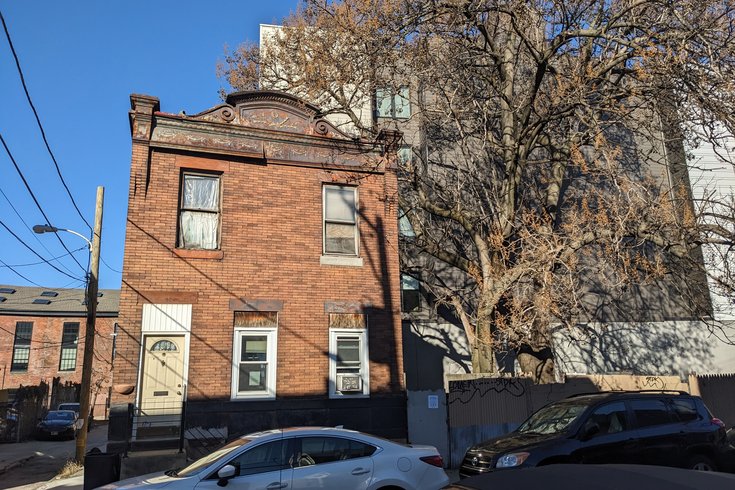
March 21, 2024
 Michaela Althouse/PhillyVoice
Michaela Althouse/PhillyVoice
This house has been the subject of much debate in Fishtown after the local business improvement district invoked Act 135 against the property.
Council and community members gathered at City Hall on Thursday to discuss a piece of legislation that some city homeowners claim is being abused by developers who are looking for properties in prominent neighborhoods.
Councilmember Jeffery Young Jr. hosted a hearing on Act 135, a measure also called the Abandoned and Blighted Property Conservatorship Act that was designed in 2008 to address deserted or dilapidated properties. In 2014, it was amended, adding a financial incentive for filing parties.
To qualify for the act, homes have to be considered abandoned and a "blight" on the neighborhood, meaning it's causing disturbances to neighbors or reducing nearby property values, among other quantifiers. With approval from a judge, the filing entity can become conservator of the property, earn 20% of the sale and have legal fees reimbursed by the homeowners, who are also on the hook for repair costs to get the property ready to sell.
As a lawyer, Young has represented both responding homeowners and petitioners in Act 135 cases.
"There are for me some fundamental, core and even constitutional issues that I see with the act, given that it effects someone's property rights," Young said at the hearing.
The act got attention this year with a conflict in Fishtown, where the Fishtown Kensington Area Business Improvement District attempted to invoke the measure on a family home on Frankford Avenue. Homeowners argued that the home wasn't abandoned, and that its prime location made it a target for the act.
According to Marc Collazzo, the president of the Fishtown Kensington Area Business Improvement District, the homeowners are negotiating a settlement deal in which the house would be sold for $950,000, the buyer would have to reimburse legal fees, and the group wouldn't get the 20% conservator fee.
While there are specifications a home has to meet for a case to get approved by a judge, including that a property must be considered abandoned, Councilwoman Jamie Gauthier said petitions have been filed in her district in West and Southwest Philadelphia against properties that constituents are living in. Even if the petition gets dropped, she said the process can be traumatic and costly for homeowners.
Residents testifying at the hearing said the act had been invoked on properties that have suffered fire damage or were under construction. One person said the measure was used against a home that had been in his family since the 1920s. Some claimed that developers drove around the city looking for properties to target that they could cheaply purchase.
Ray Johnson, a resident who testified about his property at 1700 Christian St. in Graduate Hospital, said that Act 135 was used against his home twice within six months. In the end, he had to spend thousands in legal fees to remove the petitions. He said on the surface, Act 135 is a good law, but it's being abused by bad actors.
"These are the folks that are insider trading," Johnson said.
Many residents at the hearing also said the act disproportionately targets homeowners of color living in up-and-coming neighborhoods. A Penn study in November found that Black residents own 35% of homes in Philadelphia County, but account for 42.7% of Act 135 petition respondents. Asian American residents make up 7.2% of homeowners in the city but account for 11.8% of respondents.
Gauthier said she has also seen positive use of the act, citing an instance in her district when neighbors reached out about an abandoned property that was connected to drug sales and shootings. After working to remedy the issue for a year, Act 135 was used and illegal activity has ceased, she said.
"That was an example where Act 135 was the only tool available to us to make that block safe again," Gauthier said. "What [those testifying] described is not that, it's very predatory."
Paul Toner, an attorney at Orphanides & Toner who works on these cases, said that while there are "bad actors" abusing the act, it's largely something that helps neighbors who feel unsafe.
"If you have an abandoned and blighted property and it actually qualifies for Act 135, you're depriving everyone around you of the chance to have a basic, normal livelihood," Toner said.